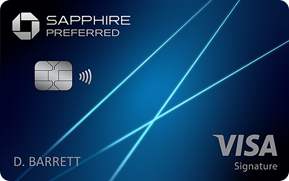Cash Back vs. Travel Rewards: Which Is Right for You?
Sarah Johnson
When it comes to credit card rewards, the two most popular options are cash back and travel rewards. Each has its own strengths, and the best choice depends on your lifestyle, spending habits, and financial goals. This guide will help you understand how each type works, weigh the pros and cons, and make the smartest decision for your wallet.
How Cash Back Credit Cards Work
- Straightforward rewards: Earn a percentage of your purchases back as cash, usually as a statement credit, direct deposit, or check.
- Types of cash back cards: Flat-rate (e.g., 2% on everything), tiered (e.g., 3% on groceries, 2% on gas), and rotating categories (e.g., 5% on select categories that change quarterly).
- Best for: People who want simplicity, flexibility, and immediate value from their rewards.
- Redemption: Cash back is easy to redeem and can be used for anything—no restrictions or blackout dates.
How Travel Rewards Credit Cards Work
- Points or miles: Earn rewards that can be redeemed for flights, hotels, or other travel expenses.
- Types of travel cards: Co-branded (tied to a specific airline or hotel) and flexible points (transferable to multiple travel partners, e.g., Chase Ultimate Rewards, Amex Membership Rewards).
- Best for: Frequent travelers, those who enjoy maximizing value, and people who are flexible with their travel plans.
- Redemption: Travel rewards can offer outsized value, especially when transferred to partners for premium flights or luxury hotels.
Pros and Cons: Cash Back vs. Travel Rewards
- Cash Back Pros: Simple, flexible, no learning curve, and immediate value. Great for people who want to offset everyday expenses.
- Cash Back Cons: Rarely offers more than 2-3% back; no opportunity for outsized value like with travel points.
- Travel Rewards Pros: Potential for high-value redemptions (e.g., business class flights, luxury hotels), travel perks (lounge access, free checked bags), and sign-up bonuses worth hundreds or thousands of dollars.
- Travel Rewards Cons: More complex, requires research and flexibility, and points can be devalued by programs. May have annual fees.
How to Decide: Key Questions to Ask Yourself
- Do you travel at least once or twice a year? If not, cash back is likely the better fit.
- Do you enjoy learning about points, transfer partners, and maximizing value? If not, stick with cash back.
- Would you rather have simple, flexible rewards or are you willing to put in effort for bigger travel perks?
- Are you comfortable paying an annual fee if the rewards/perks outweigh the cost?
- Do you have upcoming big travel plans? A travel card sign-up bonus could be very valuable.
Advanced Strategies: Combining Both for Maximum Value
- Many savvy cardholders use both: a cash back card for everyday spending and a travel card for travel purchases and big bonuses.
- Pair a flat-rate cash back card with a flexible travel card to cover all your bases.
- Some issuers allow you to combine points from different cards (e.g., Chase Freedom + Chase Sapphire Preferred) for more flexibility and value.
- Adjust your strategy as your lifestyle changes—there's no need to pick just one forever.
Common Mistakes to Avoid
- Chasing rewards at the expense of your budget—never spend more than you can afford just for points or cash back.
- Letting points expire or devalue—always check expiration policies and use points before devaluations.
- Ignoring annual fees—make sure the value you get exceeds the cost.
- Not reading the fine print on redemption options and restrictions.
- Overcomplicating your strategy—sometimes simple is best!
FAQs
- Can I switch from cash back to travel rewards later? Yes! Many issuers let you product-change between cards, or you can simply apply for a new card.
- Are travel rewards always worth more than cash back? Not always. It depends on how you redeem them—sometimes cash back is the better deal for your situation.
- Do I have to pay taxes on rewards? Generally, no—rewards earned from spending are not taxable, but bonuses for opening accounts without spending may be.
- Can I have both types of cards? Absolutely! Many people do, and it's a great way to maximize value.
- What if I don't want to track categories or points? Choose a simple flat-rate cash back card for maximum ease.
There's no one-size-fits-all answer—both cash back and travel rewards can be incredibly valuable when matched to your lifestyle. Take stock of your habits, goals, and preferences, and don't be afraid to adjust your strategy as your needs change. The best rewards are the ones that bring you the most value and joy!


